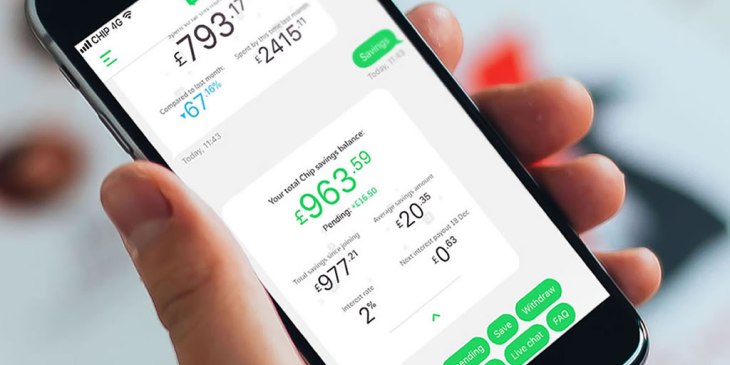Chip, the chatbot app that plugs into your bank account and lets you automatically save for a rainy day, has raised nearly £1.1 million on equity crowdfunding platform Crowdcube.
The fund raise, which is part of a larger £2.4 million funding round, forms part of plans for the London-based startup to apply for a banking license so that it has more flexibility regarding the kinds of products it can offer in the future. The app currently claims 30,000 active users “who are collectively saving millions a month”.
Specifically, a banking license would permit Chip to begin lending out a portion of customer deposits in order to power a future alternative to your bank’s existing overdraft, with a potentially lower and more flexible interest rate.
Right now, for Chip to offer such a product — which it has begun beta testing, regardless — the startup has to effectively re-sell existing financial products that already exist wholesale. This, founder and CEO Simon Rabin says, is limiting how much product innovation of its own it can introduce.
In other words, to have a crack at beating the banks, Chip has come to the conclusion that it needs to be a bank, at least in the regulatory sense, even if, as Rabin tells me, the company has no intention of introducing a current account.
You’ll still be asked to plug Chip’s chatbot app into your existing bank accounts, with upcoming Open Banking legislation — which requires banks to let customers share their transaction data and allow third-party apps to move money around on their behalf — taking care of the rest.
“In order to offer the customer a 10x better product experience, you can’t just resell them the existing market. All that makes you is a slightly better money supermarket!” he says. “We learnt this summer that customers love the smart credit functionality but we can’t make it viable within the existing wholesale funding market”.
But with a banking license, which will involve a lengthy and expensive process, the Chip founder thinks the company can genuinely build the “best savings account in the world… that helps you save, lets you earn best rates in the market, reduces costs on borrowing”.
A statistic Rabin is fond of citing is the claim that an average U.K. adult saves 1.7 percent of net income, yet spends 3.4 percent of net income servicing credit card and overdraft debt. “We want to build a product that inverts those numbers,” he says.
Rabin also believes Chip’s intention to apply for a banking license will form part of a wider trend that will see a second wave of challenger banks in the U.K. who aren’t seeking to own the customer relationship through the current account, but instead are building out their niche value proposition.
In Chip’s case, that’s a chatbot-powered smart savings and credit app. Another example, he says, is peer-to-peer lending and investment platform Zopa, which also plans to become a licensed bank.
